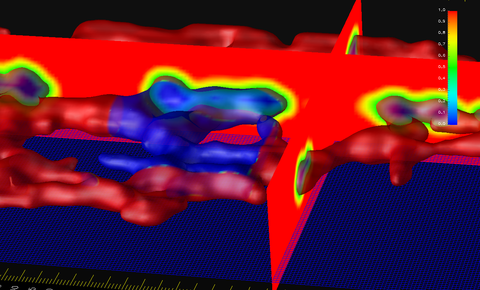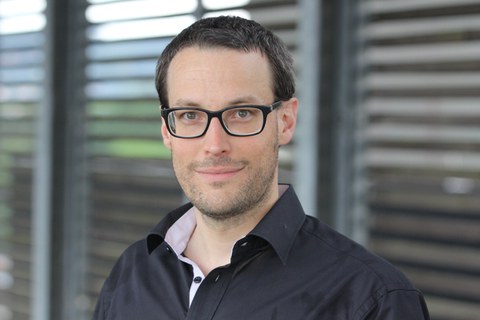Center for Advanced Modeling and Simulation (CAMS)
Computational modeling and simulation
The Center for Advanced Modeling and Simulation (CAMS), which is currently being founded, will bundle the activities in the area of method, theory and software development for computer-aided modeling and numerical simulation in different application areas. It is to become a center for computational modeling and simulation at the TU Dresden.
Research
Based on existing research projects at TU Dresden, the center will create a platform for innovative simulation technology and generate synergies and options for new interdisciplinary research fields through the interaction of its members. Here, CAMS covers research on methods, theory, algorithms and software frameworks for computational modeling and simulation."Advanced" here means that approaches already routinely used in application domains or in industry, will not be the focus of CAMS. The center focuses rather on curiosity-driven exploration of unconventional, disruptive, and even "crazy" new approaches to computational modeling and simulation methods that might not receive the latitude, creative incentive, or appreciation to be developed within an existing application group.
Thus, CAMS is a think tank for the methodological foundations of modeling and simulation, which are transferred out of CAMS into the interdisciplinary application domains represented by its member groups. Topics include both modeling (i.e., theoretically based methods for model building, model inference, model derivation, or model learning from data) and simulation (i.e., numerical methods, simulation algorithms, simulation platforms and languages).
Examples of issues
- Automated learning of physically consistent models from data.
- Model inference from small and noisy data sets
- Multi-scale simulation methods
- Quantification of simulation uncertainty
- Modeling and simulation of non-equilibrium and non-linear systems
- Coarse-graining and multi-scaling
- Programming languages and software frameworks for computer simulation
- Performance portability on heterogeneous computer architectures
- Provably optimal algorithms for modeling and simulation
- Simulation data management, automated logging, and semantic querying
- Reproducibility in computational science and research data management
- Numerical methods for curved spaces, manifolds, and topological spaces
- Efficient algorithms for multibody simulations and particle methods
- Data-driven surrogate models for accelerated simulations
- Interactive computational steering
- Transparent high-performance computing and user-friendly simulations
- Simulations in high-dimensional spaces
- Immersive in-situ visualization of simulations using AR/VR
To meet the needs of this program, CAMS will work closely with the DLR Institute for Software Methods for Product Virtualization, the Center for Systems Biology Dresden, the Helmholtz-Zentrum Dresden-Rossendorf and the Center for Advanced Systems Understanding (CASUS) in Görlitz.
Contact/PI
Prof. Dr. Ivo F. Sbalzarini
Ivo Sbalzarini holds the professorship for Scientific Computing in Systems Biology at the Faculty of Computer Science and leads the university department at the Center for Systems Biology Dresden (CSBD). He is group leader at the Max Planck Institute for Molecular Cell Biology and Genetics and elected member of the Faculty of Mathematics.


